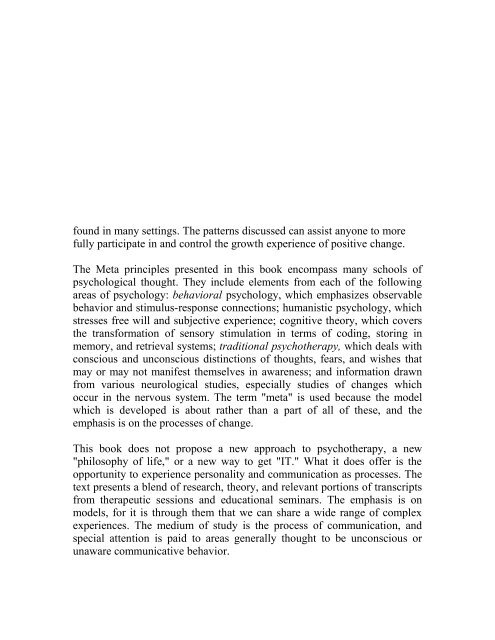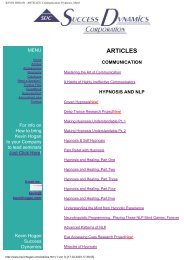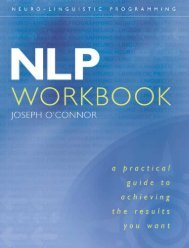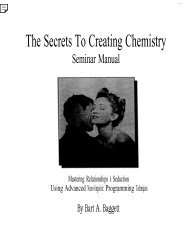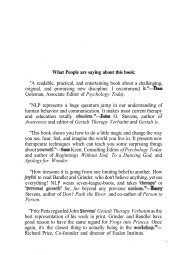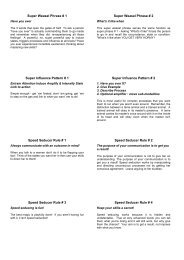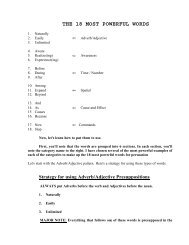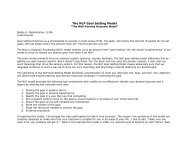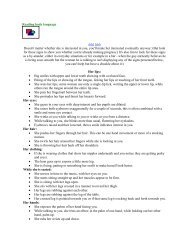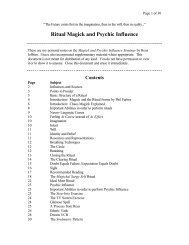A Pragmatic Guide To Communication & Change.pdf - NLP Info Centre
A Pragmatic Guide To Communication & Change.pdf - NLP Info Centre
A Pragmatic Guide To Communication & Change.pdf - NLP Info Centre
- No tags were found...
You also want an ePaper? Increase the reach of your titles
YUMPU automatically turns print PDFs into web optimized ePapers that Google loves.
found in many settings. The patterns discussed can assist anyone to more<br />
fully participate in and control the growth experience of positive change.<br />
The Meta principles presented in this book encompass many schools of<br />
psychological thought. They include elements from each of the following<br />
areas of psychology: behavioral psychology, which emphasizes observable<br />
behavior and stimulus-response connections; humanistic psychology, which<br />
stresses free will and subjective experience; cognitive theory, which covers<br />
the transformation of sensory stimulation in terms of coding, storing in<br />
memory, and retrieval systems; traditional psychotherapy, which deals with<br />
conscious and unconscious distinctions of thoughts, fears, and wishes that<br />
may or may not manifest themselves in awareness; and information drawn<br />
from various neurological studies, especially studies of changes which<br />
occur in the nervous system. The term "meta" is used because the model<br />
which is developed is about rather than a part of all of these, and the<br />
emphasis is on the processes of change.<br />
This book does not propose a new approach to psychotherapy, a new<br />
"philosophy of life," or a new way to get "IT." What it does offer is the<br />
opportunity to experience personality and communication as processes. The<br />
text presents a blend of research, theory, and relevant portions of transcripts<br />
from therapeutic sessions and educational seminars. The emphasis is on<br />
models, for it is through them that we can share a wide range of complex<br />
experiences. The medium of study is the process of communication, and<br />
special attention is paid to areas generally thought to be unconscious or<br />
unaware communicative behavior.


